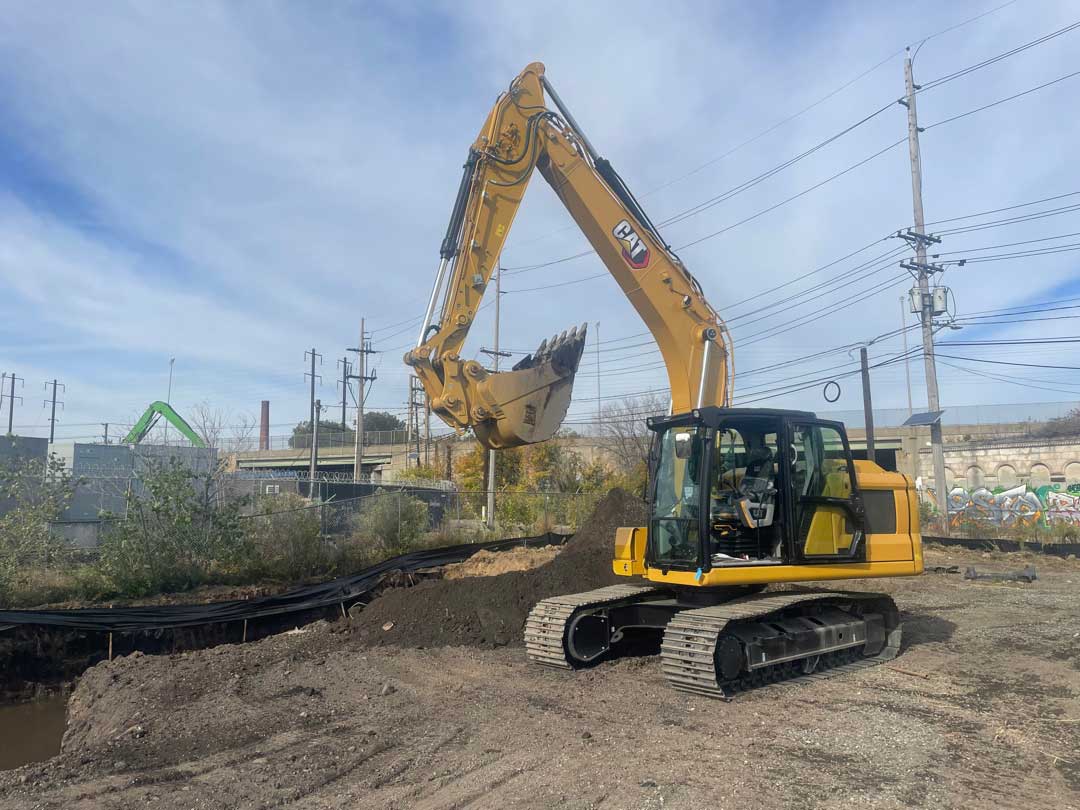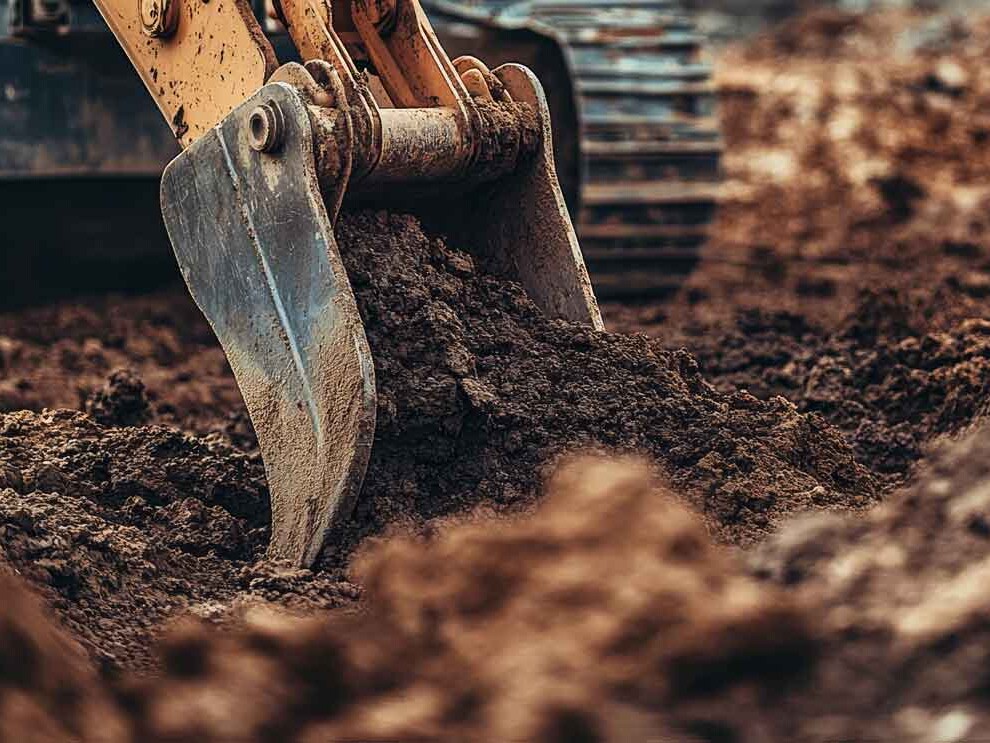Choosing the right construction site takes thoughtful research and planning.
Part of this planning process includes test pits and trenches. Many factors determine whether ground conditions are suitable for construction.
Test pits and trenches can uncover potential problems to the construction project. You want to know about these issues before you invest too much money.

By Digging Test Pits and Trenches, You May Uncover:
When there are so many potential issues that can be discovered through test pits and trenches, it is worth investing in the preliminary project before starting construction.
Soil Contamination
If there was an oil spill or chemical leak in the area, test pits and trenches can recover the soil and send it to a lab to discover the problem. If the soil is found to be contaminated, soil remediation or abandoning the project is the next step.
Water Table Location
The water table is located below the soil layer and is where the more compact soil is found, with water filling in all of the gaps. The soil above the water table is aerated and contains oxygen. The water table level changes depending on rainfall. You can use test pits and trenches to find the water table location before starting construction on a site.
Underground Oil Tanks
Test pits and trenches can be used to discover underground structures. For example, a common underground structure can be an underground oil tank, which was once used to heat homes in some areas. Or an underground swimming pool that was filled in could also be discovered using test pits and trenches.
Groundwater Pooling
Test pits and trenches may uncover an over-saturation of water in an area, pointing to flooding of the soil and making it unsuitable for solid construction. It is best to know about such issues before starting construction.
Landslide Potential
You can find out if the soil on the side of a hill or mountain is susceptible to landslides through test pits and trenches. Homes are desirable when built on the side of a hill with a picturesque view. But if landslides are likely, it is not possible to build in that area.
Soil to Rock Ratio
When digging for a foundation for a tall building or a swimming pool, you may want to know what equipment is necessary for the project. If the land is filled with rocks that will need to be drilled into, the project can be much more extensive than planned. Test pits and trenches will give a sampling of the area to find out what to expect.
Benefits of a Test Pit
When you have geotechnical engineers conduct test pits and trenches, you can lean on their expertise to evaluate the condition of the soil. If you were to dig out a whole foundation of a building to find out later that the soil is contaminated and needs remediation, this could result in having to start all over again.
Test pits and trenches will save you the money of redoing expensive work. When the areas are tested to ensure the site is ready for construction, you won’t run into problems later.
How to Properly Dig Test Pits
Upon the initial site investigation, measured test pits will be constructed. Depending on what you are trying to find out with the test pit, they can be shallow or deep. For example, if you are digging a foundation, you should build the test pits and trenches a few feet deeper than the required construction dig.
An excavator is used to dig more shallow test pits and trenches. Environmental consultants take samples, and the soil is tested for contamination and evaluated to see if it is suitable for new construction.
Once the test samples have been collected, the test pits and trenches are filled back in by our team at Mikula Contracting. If testing comes back normal, then the land can be prepared for new construction.
Other Factors to Consider
Test pits and trenches can reveal a layer of rock under the soil. There is solid rock under shallow soil in some areas that gets in the way when digging foundations, basements, and swimming pools.
When you go into a project knowing that you will have to dig through layers of rock, it can help prepare the team for how extensive the project will be. The team will need the proper equipment, charge the right price for the project, and adjust the timeline if there is rock underneath the surface soil. Test pits and trenches can help in this preparation.

Service Areas
For more than 75 years, Mikula Contracting has been serving the Northern New Jersey area. With both commercial and residential services available, you can find excavation services covering these areas:
- Site Planning and Preparation for New Construction
- Excavation in Moving Heavy Equipment
- Excavation in Moving Earth
In every aspect of our work, we represent ourselves with professionalism, proving that you made the right choice for an excavation contractor in New Jersey. We love to build relationships with our clients from the start, knowing that it is valuable to both of us to have a trusted contractor interaction.
NJ Test Pit Excavation Contractor
For contractors who are skilled in test pit excavations, look to Mikula Contracting. You can be sure that your test pit will be dug, tested by environmental consultants, and put back in place by our expert contractors. If you want to ensure that the soil is right for your next construction project, contact Mikula Contracting today.